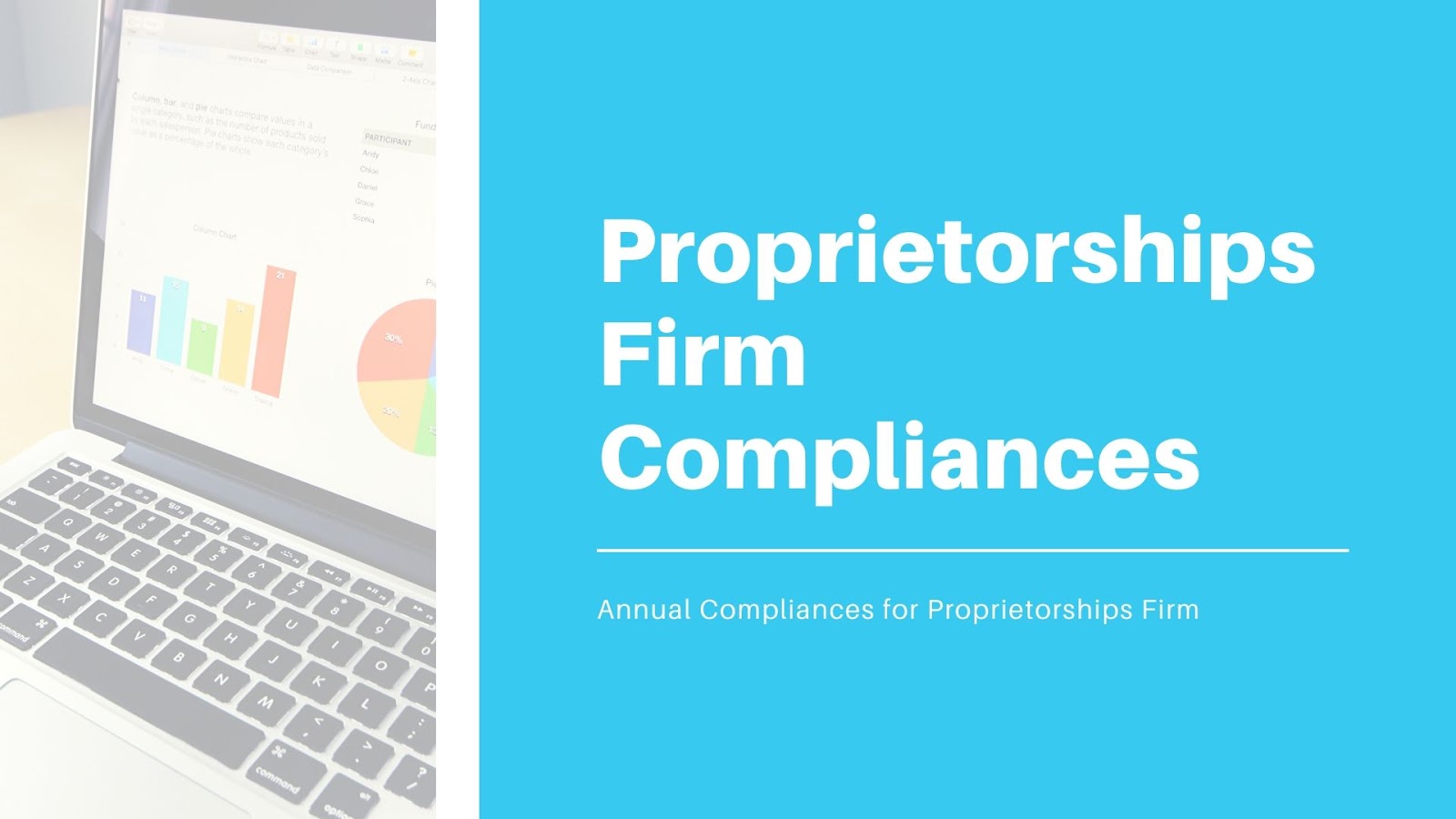Key Characteristics of a Proprietorship Firm and its Compliance Aspects
Proprietorship
is the simplest form of setting up a business, with minimum registration or
formality requirement. Proprietorship is often termed as One Person Company since it is a one-man/woman show and has no
partners or investors. Some of the key features of this type of business setup
can be listed as follows:-
• No
capital threshold to start
In order to
be a private limited or an LLP, you might have a minimum or maximum capital
limit. However, for a Proprietorship Firm,
there is no such ceiling for a minimum or maximum amount of capital.
• Legal
entity concerns
The
proprietor and the proprietor firm are considered to be a single entity in the
eyes of law. Any liability on the proprietor firm is a direct liability for the
proprietor. The same is true with respect to the assets as well. For income tax
purposes or Proprietorship
Firm Compliance purposes, the PAN card of the proprietor is used for
the proprietor firm as well.
• Cannot
issue shares or have investors
The
proprietorship business is all about one person and hence, there is no scope
for the issue of shares or pooling in of investors for excess capital needs.
However, the proprietor can raise additional funds by borrowing money and
listing it as liabilities for self as well as the proprietor firm.
• Auditing
thresholds
Proprietorship Firm Compliance has a very high turnover threshold
for accounts to be audited by a Chartered Accountant. For proprietor firms
engaging in professional services like lawyers, doctors, or similar
professions, have a turnover threshold of 50L, beyond which, they will have to
get the firm books audited by a chartered professional. The threshold raises to
1 crore for Proprietorship Firms who
are not into professional services.
What would an Ideal One Person Company Compliance Plan consist of?
A typical
plan or a package that could be suitable for a proprietorship firm could have
certain mandatory and optional services. This list below has some essential
aspects of compliance and filing for a one person company:-
• Income
tax filing and GST compliance
The Annual Filing
for One Person Company has to be evaluated to ensure compliance. This
might require the filing of a separate sole proprietorship return with the
proprietor PAN and also GST compliance.
• TDS
returns
The sole
proprietorship might have the day to day business activities that might require
TDS returns. TDS is Tax Deducted at Source, which is a deduction to a payout to
a customer/creditor or any other business entity, due to a business
transaction. This deduction needs to be provided to the Income tax department
by filing the TDS return. Usually, consultants or service providers cap TDS
returns to 50 based on pricing.
• Tax
Audit if required
As
discussed, if the proprietorship exceeds the threshold and needs an audit of
accounts, the same has to be included in a comprehensive package.
• Bookkeeping
and help with financial statements
Bookkeeping is an integral part of compliance. Most packages allow for 100 invoices for bookkeeping assistance based on pricing. Similarly based on bank statements for the financial year and other financial statements like credit card statements, etc., are used to draft financial statements.




The excellent information is provided in this article. I can learn more about annual compliance expenses for private limited companies in Singapore. Thanks for sharing.
ReplyDelete